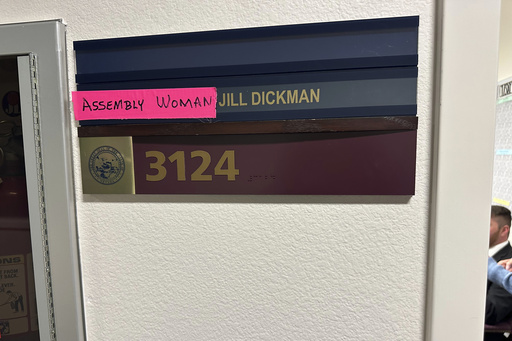
PHOENIX — The constitution of South Dakota historically refers to the office of governor using male pronouns. However, for the last six years, that position has been held by Kristi Noem, who was the first female governor of the state. In an effort to modernize this language, Noem backed a constitutional amendment aimed at changing the language to be more gender-inclusive, including recognition for nonbinary individuals. Unfortunately for Noem, this proposal was turned down by voters during the 2024 general election.
In many states across the United States, the use of male pronouns in constitutions is becoming increasingly outdated. At one point this year, there was a historic number of 13 women serving as governors before Noem’s resignation to join the Cabinet of President Donald Trump. Additionally, according to the Center for American Women and Politics, there are currently 2,469 women serving in state legislatures nationwide.
Despite the rise of women in politics, most states have yet to update their constitutions to reflect this change. However, a few states, like New York and Vermont, have made strides; New York updated its constitution to gender-neutral terms in 2001, and Vermont did the same in 1994. In Washington state, a recent legislative effort to modernize the state’s constitution failed in a committee, while in Connecticut, State Senator Mae Flexer has plans to again pursue constitutional revisions in the upcoming legislative session. Some states like Nevada and California have adopted gender-neutral terms in their legislative bodies, referring to lawmakers as assemblymembers instead of assemblymen or assemblywomen.
Language plays a significant role in shaping perceptions about community inclusivity, as emphasized by Debbie Walsh, the director of the Center for American Women and Politics. During her 2023 State of the State address, Noem highlighted the importance of updating the South Dakota constitution, originally written in 1889. “The South Dakota state constitution requires the governor to commence each legislative session by providing information about state affairs and recommending necessary measures,” Noem stated. She noted that the current text refers to the governor as “he,” indicating a need for change.
A few months after her address, Noem signed a bill that would replace male pronouns with more gender-neutral language in state law. The bill aimed to substitute phrases like “he shall deem” with “the Governor deems.” However, altering the constitution demands voter approval, and the proposal failed to secure the necessary support among South Dakotans.
Senator Erin Tobin, who sponsored the amendment, viewed it as a recognition of the progress made in electing women to office and as a celebration of this advancement. She attributed some of the pushback on the amendment to the mention of the word “pronoun,” which intertwined the proposal with broader conservative views challenging nonbinary identities. Furthermore, there were concerns about a lack of campaigning for or against the measure, as well as financial considerations regarding the constitutional change.
Although terms like “he” and “she” could be seen as inclusive of some transgender individuals, Noem has maintained a stance against gender transition policies. She has recently enacted laws prohibiting gender-affirming healthcare for minors and barring transgender girls and women in college from participating in sports that align with their gender identity.
In late January, Noem resigned to take a position at the U.S. Department of Homeland Security. Her resignation came shortly after Trump issued an executive order limiting federal recognition to only male and female genders. Additionally, he announced a directive aiming to restrict transgender athletes from competing in girls’ and women’s sports categories.
Trump’s 2024 presidential campaign continues to highlight his opposition to transgender rights, and extensive funds have been allocated for anti-transgender advertising efforts by supportive political action committees. Senator Tobin revealed that, despite her familiarity with the initiative, if she had been unaware, she would have voted against it based on how the wording was presented.
Republican state representative Brandei Schaefbauer also encouraged voters to reject the gender-neutral amendment. While she endorses the use of “he” or “she” for officeholders, she opposes any shift towards gender-neutral terms. Schaefbauer expressed concern that implementing such changes would detract from the distinct identities of individuals.
Neil Fulton, the dean of the University of South Dakota School of Law, insisted that masculine pronouns have traditionally encompassed all individuals and that the language used in the South Dakota constitution mirrors the norms of its drafting period. He pointed out that gendered language has not limited female officeholders in South Dakota, as the state has a history of elected women. Fulton emphasized that language conventions evolve over time, and advocates for change argue that the context surrounding these terms must shift accordingly. The state legislature’s drafting guidelines now discourage the exclusive use of male pronouns in reference to individuals or groups.

